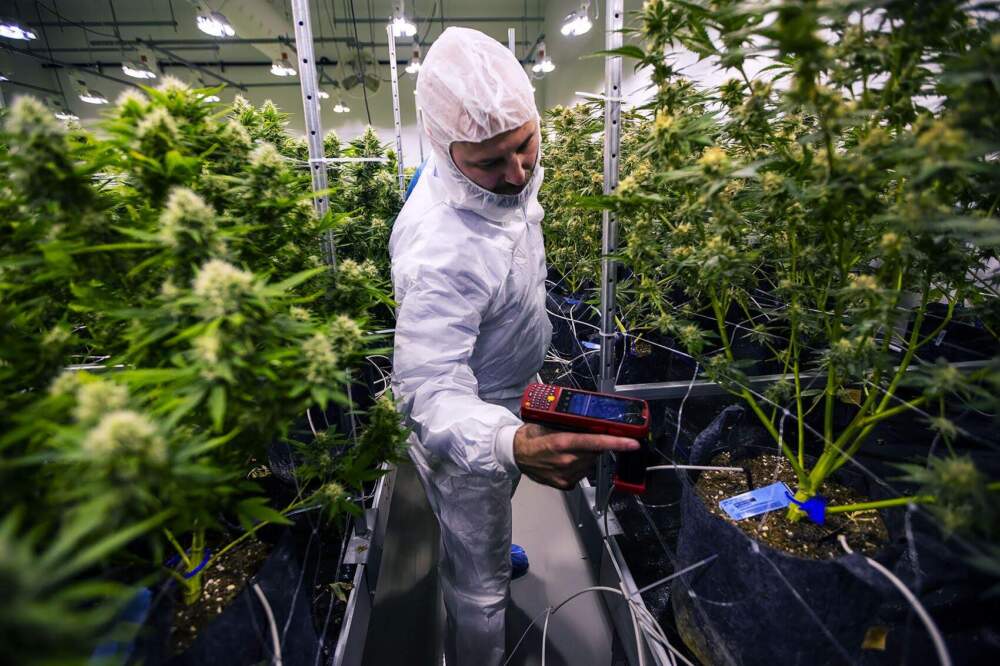The Massachusetts Cannabis Control Commission has a big job overseeing the state’s legal marijuana industry. Recreational cannabis recently passed $6 billion in total sales, and it’s now the state’s most valuable cash crop — raking in even more than our iconic cranberries.
But lately, the commission has made headlines for other reasons.
It started last summer, when commission Chair Shannon O’Brien described an agency “in crisis” due to a host of employee departures. Weeks later, the state treasurer suspended O’Brien for allegedly making racially insensitive comments and mistreating an employee — accusations O’Brien denies.
By December, I reported the commission had suspended its head of human resources and its communications chief, for reasons officials still won’t disclose. And earlier this month, we reported three former high-level women staffers alleged workplace bullying by that suspended communications chief, Cedric Sinclair.
But is the chaos inside the commission affecting its ability to effectively regulate this new and growing industry?
Some certainly think so — and there are multiple signs of delay. The commission is still working out regulations for social consumption sites, like “cannabis cafes,” nearly eight years after voters approved it on the ballot. Marijuana delivery businesses are waiting for an already-approved rule change. Social equity license holders are calling for reforms as they fall into debt. And the agency continues to search for an executive director, six months after the former head resigned.
State Sen. Michael Moore told me the commission needs “a complete re-setting” — but it’s unclear when or how that might happen. No one seems to be in charge of watchdogging the agency.
State Treasurer Deb Goldberg is holding closed-door hearings that could lead to O’Brien’s removal, with a fourth session coming up June 17. Yet, Goldberg’s office says she has no further oversight of the day-to-day operations of the commission. The Legislature could step in to reform the structure of the commission but has shown no appetite to do so; a bill filed by Moore to create a special auditor for the agency is languishing in committee. A spokesperson for Gov. Maura Healey declined to comment on whether the governor would step in, noting that the commission is “an independent agency.”
Meanwhile, the commission’s roughly 130 employees continue to work without permanent leadership and amid allegations of a toxic culture at the Worcester-based agency. As the political appointees above them hash it out in public, it’s they who will continue to navigate this stormy time for Massachusetts’ marijuana industry.
P.S.— What’s on your mind this election season? We want your questions. Are you curious about Massachusetts’ ballot questions? Third-party candidates? Issues like housing and immigration? Whatever you want to know more about, let us know by filling out this short survey and help inform WBUR’s election coverage.
H/T: www.wbur.org



